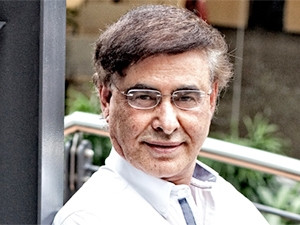
For a man who runs an IT company, Asher Bohbot has some interesting views on technology.
He thinks there's too much of it, and certainly too much communication that demands attention and takes us away from the more important jobs of actually living and enjoying life.
"As much as technology helps us in many aspects of life, it also challenges us as human beings," says Bohbot, the founder and CEO of EOH. "The amount of information and communication is so intensive and it's happened so quickly that our stress-coping mechanism is still evolving because our bodies and minds take hundreds of thousands of years to adjust to our environment."
Humans are struggling to cope with being 'always on' and it's taking a harsh toll on our emotions and our relationships, he believes. "Obviously not all technology - there's a lot of good that's been created - but absorbing information and making sense of it consumes us so much that we are forgetting to enjoy life. It keeps us so busy that the stuff nature gives us to enjoy takes a back seat," he says from EOH's head office in Bedfordview.
He talks of messages around the clock and people feeling hurt or offended if you don't reply instantly. "The impact on society is very intense. We have 24 hours in a day and it's taken away some of the time for other stuff. I have no doubt that another revolution will come to try to counter it."
But perhaps young people have no 'other stuff' they'd rather do because their lives are on social media, I suggest. And won't we older folk simply die out, rather than stage a revolution, demanding walks in the park and face-to-face contact?
Relevant to society
Young people cope better because they were born into it, he agrees, but evolution hasn't created mechanisms in our bodies and brain to cope with this highly intense interaction with information.
"We more mature people remember how it was before. Those who don't remember how it was before are in different relationships exclusively based on using technology. It's definitely increased the ability for people to communicate, meet and interact, but it's a bit out of balance."
So does he respond instantly when a colleague or friend sends him a message? "Of course I respond," he says. "I didn't say I have a revolution to run."
I didn't say I have a revolution to run.
Asher Bohbot, the founder and CEO of EOH
His views seem incongruous for the CEO of 10 000 IT employees, but he's talking about one particular aspect, not the kinds of technologies that can fight poverty, make deaf people hear or improve our health.
"What we do at EOH is relevant to the society we live in. It's a technology business that's into water, energy and government functionality, so we bring technology skills to challenges that society has. We have a whole division called Smart Government that provides solutions to make governments in Africa more effective and responsive."
That's the kind of technology he likes - the sort that eliminates queues at government offices or takes education and healthcare to rural areas. "Our purpose is to bring technical skills that are relevant to the development of South Africa and Africa. It's good for business and society and, frankly, makes us relevant."
Working to contribute
He spends the next few minutes talking about having a purpose in life, both personally and for a business. We all want to make money, he says, but getting up each day just to make more money isn't rewarding.
He borrows my notebook and draws a graph, showing money on one axis and happiness on the other. In the bottom left corner, his line shows happiness rising as income rises. You get a car, then a house, and no longer worry about covering your bills. Then, at a certain point, the money line keeps rising but the happy line plateaus. Happiness no longer lifts in line with your earnings, he says. So how do you get the happy line to rise again?
"You will be happier, stronger and more vibrant if you have something to get up for every morning, if you have a purpose."
Work is Bohbot's purpose, for the sheer satisfaction of doing good. He achieves his personal purpose through the EOH purpose, which is to use IT to develop a better life in Africa, with better governments, and better health, education, water and energy supplies.
When I ask about retirement now that he's in his 60s, he gives me a look. "What? You want to bury me?" he asks. He'll run EOH for as long as he is still enjoying himself, and more importantly, still able to contribute. There are other things he would enjoy, he says, but if he retired to lie on a beach, he'd just be one grain of sand among millions of others, and that's not enough.
"I'm working, quite frankly, to contribute. I genuinely think I'm fortunate to be part of something that's interesting and relevant. I'm fortunate because it doesn't just depend on what I do, I can mobilise 10 000 other people to do what I believe is for the good of us and the country," Bohbot says.
Too many people have grown hedonistic and self-indulgent, including our political leaders, he believes. "People need a purpose for their existence and their purpose should be stronger than their own little indulgences. I think that's why we are here. We live for a few years and then we disappear. Is our purpose just to have fun, then go? I don't think so. I think to feel fulfilled is to have a purpose and to work to fulfill it."
This article was first published in the [February 2016] edition of ITWeb Brainstorm magazine. To read more, go to the Brainstorm website.
Share